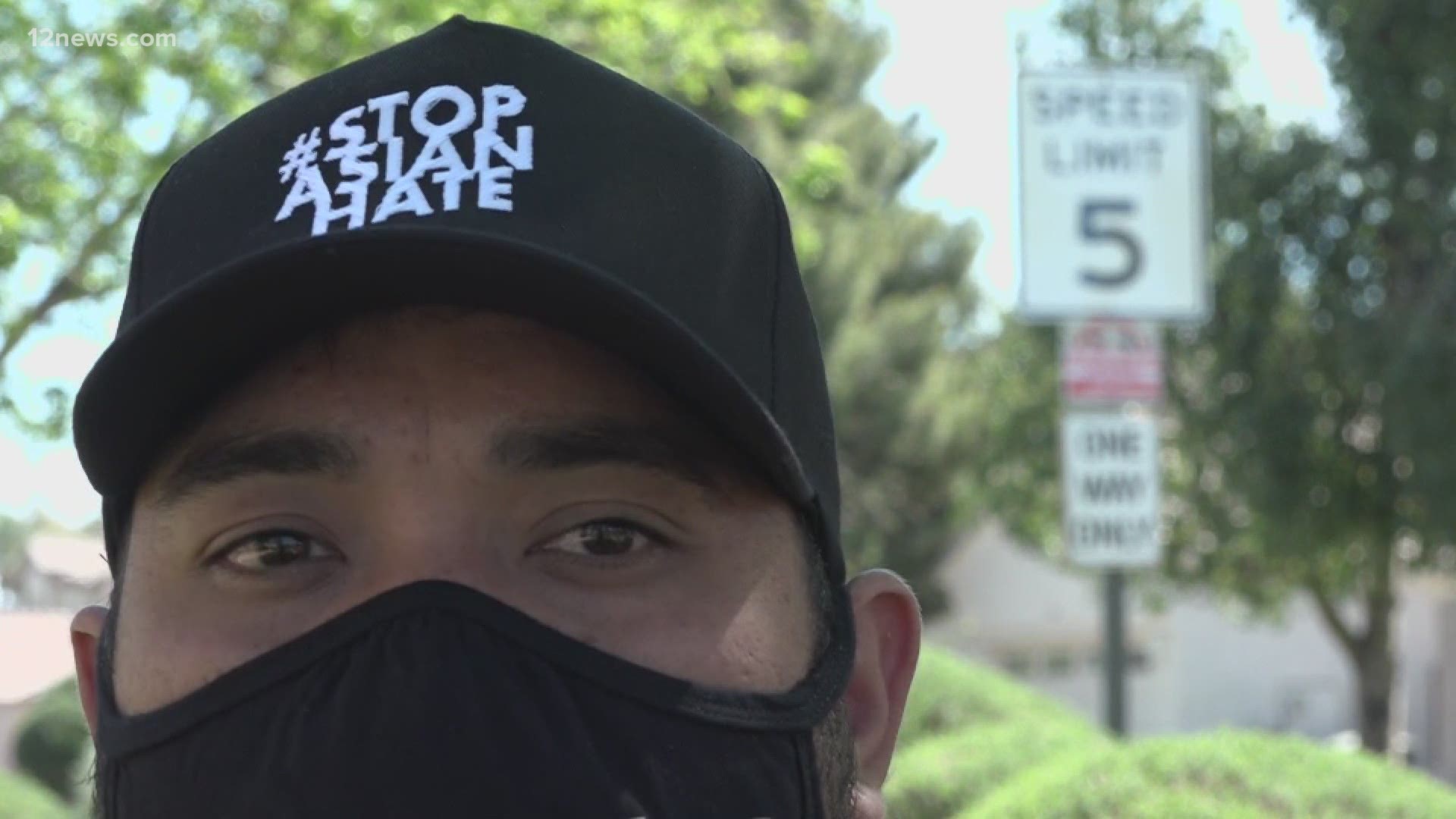PHOENIX — The shooting spree in Atlanta that left eight people dead, including six Asian women, is the latest violent attack in a concerning rise of assaults on Asian-Americans.
Reports of Anti-Asian hate crimes surged 150% in major U.S. cities throughout the pandemic
A recent study released by the Center for the Study of Hate and Extremism at California State University - San Bernardino, examined 16 of America's largest cities.
Phoenix saw a 50% increase in Anti-Asian hate crimes, two in 2019 and three in 2020. But it was New York City that numbers surge from three in 2019 to 28 in 2020.
The report reflects a terrifying trend for many Asian Americans during the COVID-19 pandemic.
"Not only have we dealt with the COVID-19 pandemic, but a pandemic of ignorance as well. When the previous [presidential] administration labels it the Chinese virus, it puts a label on our community," said Arizona Asian Chamber of Commerce CEO, Vicente Reid.
Stop AAPI Hate released data revealing nearly 4,000 anti-Asian incidents across the U.S. throughout the pandemic.
Sixty-eight percent were in the form of verbal assaults and 11% were physical attacks. Data showed attacks on Asian women was double that of attacks on men.
Asian-Americans unfairly targeted as reason for the COVID-19 pandemic
Arizona's Asian Chamber of Commerce said business dropped by 90% throughout the pandemic.
“You know we are just trying to keep the businesses open the past year,” said Steven Diep, property manager for Mekong Plaza in Mesa.
Along with the pandemic impact on business, Diep is concerned with the recent trend in violence facing Asian communities.
"A lot of the people are afraid. They are afraid of what’s going to happen in our community.”
“No matter how many generations we’ve lived here, no matter the sweat, blood and tears we’ve put into creating this great nation, we are still not American enough,” said Vicente Reid.
Anti-Asian sentiment and racism are not as visible as other forms of hate
"It is a very invisible thing. Those who are affected by it, see it all the time. You can't tell me on accident or on some weird excuse of sexual perversion, that of itself is the most unbelievable police could have thrown out at us, as a reason for murdering a group of people," said Stanford Ph.D, Jeff Sheng.
In a January executive memo, the Biden administration condemned racism against Asian Americans.
The memo directed agencies to "take all appropriate steps to ensure that official actions, documents, and statements, including those that pertain to the COVID-19 pandemic, do not exhibit or contribute to racism, xenophobia, and intolerance against Asian Americans and Pacific Islanders."
What is a hate crime?
Hate crimes are motivated crimes targeting a victim because of their membership or affiliation of a social group, race or ethnicity, however from a legal point of view, they are challenging to prove in a court of law beyond a reasonable doubt.
“Arizona law does not have a separate offense of hate crime,” said former Maricopa County District Attorney Bill Montgomery.
Although Arizona has no hate crime law, hate can be an "aggravating circumstance" when considering a sentence.
In 2019, Montgomery told reporters that “Arizona does not discount what may have motivated someone to have committed a crime against a fellow human being.”
Arizona law (ARS 13-701, Subsection D15) states that evidence that the defendant committed the crime out of malice toward a victim because of the victim's identity including race, religion, disability and sexual orientation.
Although Atlanta investigators are still determining if race was a determining factor in the murders of Asian women, Reid is encouraging Arizonans to embrace Asian communities and celebrate the diversity that makes up state 48.
“We won’t allow it to let us live in fear, to live in hate, we are going to continue to persevere and move forward.”
The TEGNA Foundation will be providing $50,000 to Chinese for Affirmative Action to support Stop AAPI Hate’s efforts to track and respond to the surge in racism caused by the COVID-19 pandemic and another $50,000 to Asian Americans Advancing Justice (AAAJ) to ensure that low-income, immigrant and underserved Asian Americans and Pacific Islanders have access to free legal services and civil rights advocacy.”

